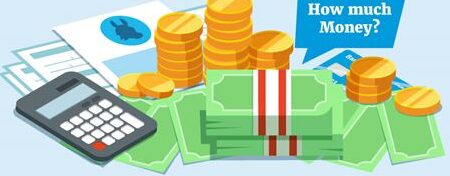How Much Cash Should You Keep in Your Checking Account – Deciding how much money to keep in your checking account versus savings can be a balancing act. While it’s important to set aside funds for long-term goals, you also need sufficient cash flow to pay routine expenses. Having little money in your checking means struggling to cover costs and possibly incurring fees if you overdraw. However, keeping an excess amount could mean missing out on savings account interest earnings. This brings up the question – what is the right checking account balance for your situation? We’ll explore the factors in deciding the optimal amount to cover your spending needs yet minimize idle funds.

What is a Checking Account?
A checking account is a type of bank account that allows account holders to deposit and withdraw money, make electronic payments and payments by check. It provide accessibility to funds while also providing monthly statements detailing account activity. They typically do not earn interest but allow greater flexibility with accessing money compared to savings accounts which limit withdrawals.
How Much Cash Should You Keep in Your Checking Account?
This is an important question, a good guideline is to keep at least one month’s expenses in your checking account as a minimum. Two months’ worth is ideal, especially if your income or spending varies a lot month-to-month. This cushion helps cover your costs if unexpected shortfalls occur.
However, the exact amount you should have on hand depends on your situation. For instance, self-employed individuals should consider a larger buffer (emergency fund) in their checking account – maybe 3-6 months of reserves. This provides a safety net when income fluctuates, as it inevitably does. Having this emergency fund prevents struggling to make ends meet should a temporary drop in earnings happen.
Benefits of Having a Checking Account Buffer
A checking account buffer is extra money set aside to pay for unexpected expenses. Having an adequate checking account buffer protects you when large one-time costs arise so they don’t take you unawares. It also means you avoid having to withdraw savings to cover gaps if you lose your job or have a monthly income drop.
However, most checking accounts earn minimal interest – even high-yield ones lag far behind savings accounts rates during times of interest rate hikes. Rather than stockpiling excess cash long-term in a zero-interest checking account, transfer those reserves to an interest-bearing savings account, CD, or other investment vehicle for higher yield potential. Reserve your checking balance only for near-term spending needs, keeping the rest working for you in accounts that offer better returns.
How Much Cash Should You Keep in Your Checking Account
to curb the financial effect of certain unexpected occurrences, it is wise to keep a minimum of one or two months earnings equivalence in your checking account at all times for the future. This will help cushion the effect of undue financial burdens that may arise as a result of certain perils. In addition to the 2 months earnings, 30% of the entire income can also be added, according to experts’ financial advice.
what is the right checking account balance for your situation
In deciding the proper checking account balance for your situation, put the following into consideration. The size of your active family. This should cover your spouse, children and the extended family. Health status of family members, consider the maintenance cost for some of your utilities. Taking these to consideration will properly inform your decision on the appropriate amount of funds to keep in the checking account.
Conclusion
In conclusion, determining the optimal amount of cash to keep in your checking account is a balancing act that requires careful consideration of your financial goals, spending habits, and emergency fund needs. While there is no one-size-fits-all answer, maintaining a sufficient buffer for daily expenses, bill payments, and unexpected costs is essential.
By regularly reviewing your cash flow, setting up automatic transfers to savings, and leveraging tools like budgeting apps, you can strike a balance that ensures financial stability while maximizing the growth potential of your money. Remember, the key is to find a comfortable equilibrium that aligns with your financial objectives and provides peace of mind in managing your day-to-day finances effectively.
